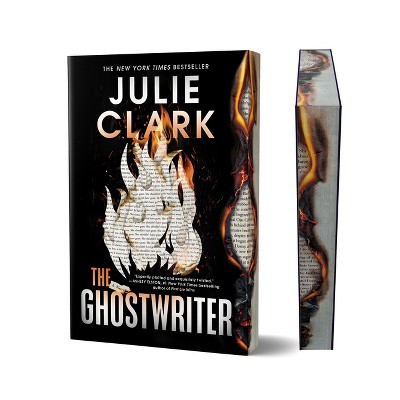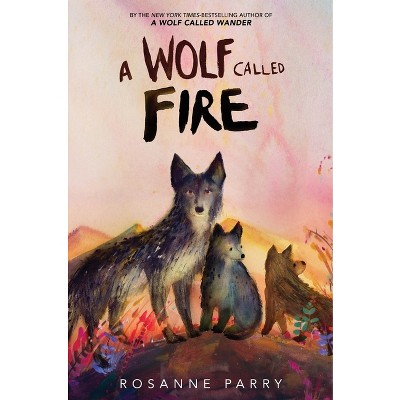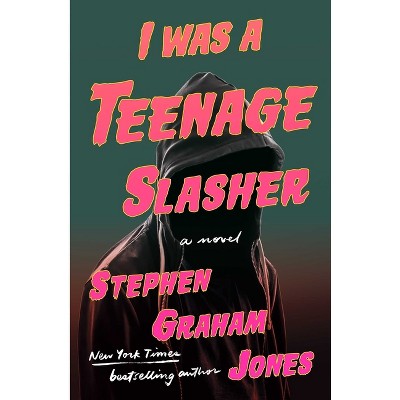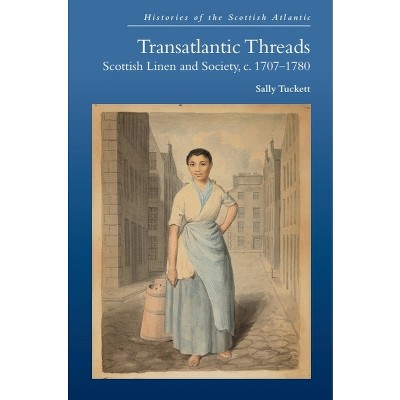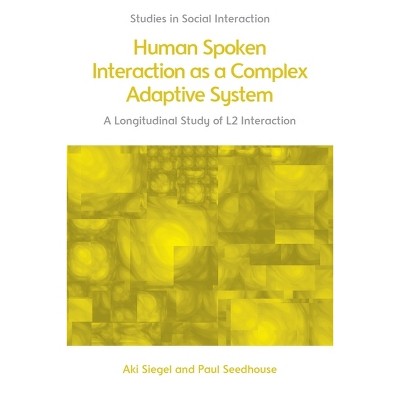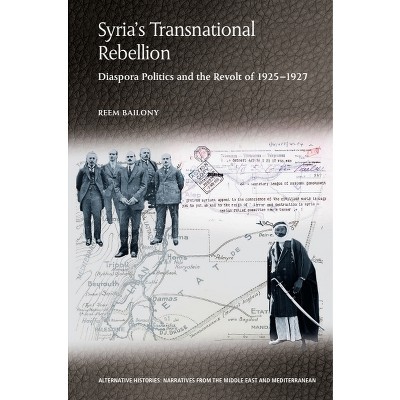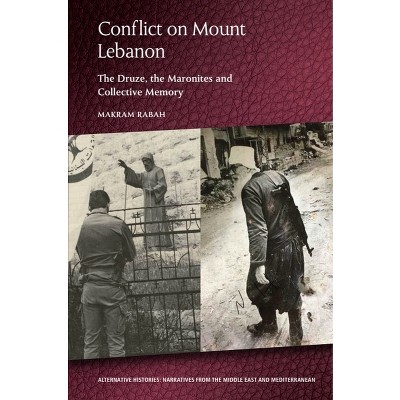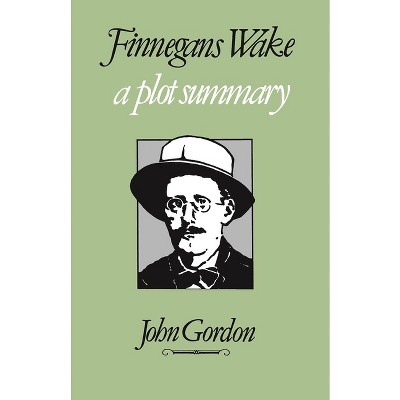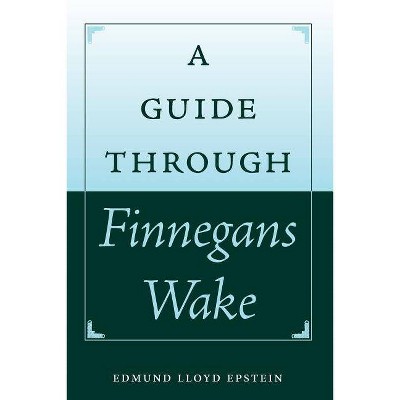Finnegans Wake - Human and Nonhuman Histories - by Richard Barlow & Paul Fagan

About this item
Highlights
- Finnegans Wake - Human and Nonhuman Histories opens new ground by exploring the productive tension between anthropocentric and non-anthropocentric readings of James Joyce's final modernist masterpiece.
- About the Author: Richard Barlow is an Associate Professor at Nanyang Technological University in Singapore and a former Academic Director of the Trieste Joyce School.
- 256 Pages
- Literary Criticism, European
Description
About the Book
Explores the productive tension between historicist and nonhuman readings of James Joyce's Finnegans WakeBook Synopsis
Finnegans Wake - Human and Nonhuman Histories opens new ground by exploring the productive tension between anthropocentric and non-anthropocentric readings of James Joyce's final modernist masterpiece. Drawing on the most up-to-date theories and methodologies (the Anthropocene, new materialism, petroculture studies, the blue humanities, animal studies, ecofeminism, ecomedia), twelve leading Joyce scholars offer valuable new insights into the interwoven historical and planetary dimensions of Finnegans Wake. The volume's focus allows the contributors to read the Wake's nonhuman imaginary in original, often surprising comparative contexts (colonialism, the Irish Revival, the Free State's energy policies, the invention of television) and to spotlight enlightening nonhuman themes in Joyce's circular history (bogs, storms, rivers, bodily fluids, skin, wolves, mourning, DNA, atoms, labour, music). As these chapters show, a century later, Finnegans Wake remains a vibrant and vital text in which to interrogate the limits, exploitations and common plight of human and nonhuman life in the 21st-century.From the Back Cover
[headline]Explores the productive tension between historicist and nonhuman readings of James Joyce's Finnegans Wake Finnegans Wake - Human and Nonhuman Histories offers valuable new insights into the interwoven historical and planetary dimensions of James Joyce's final modernist masterpiece. It is the first full-length study to explore both the Wake's historiography through the lens of the nonhuman, and the novel's intersecting ecologies, technologies and bodies from a historicist perspective. These innovative readings combine a range of approaches (including animal studies, Anthropocene studies, the blue humanities, ecofeminism, ecomedia, labour studies and petrocultures) to trace the more-than-human histories depicted in Joyce's avant-garde text. The contributors connect key human/nonhuman motifs (atoms, genes, bogs, rivers, storms, bodily fluids, skin, wolves, mourning, music) to original, often surprising contexts (colonialism, the Irish Revival, state energy policies, the history of television). These twelve chapters from leading Joyce scholars re-evaluate Finnegans Wake from a twenty-first century vantage as a vital site for reflecting on the entangled histories, crises and possible futures of life on Earth. [biographies] Richard Barlow is an Associate Professor at Nanyang Technological University in Singapore and a former Academic Director of the Trieste Joyce School. He is the author of Modern Irish and Scottish Literature: Connections, Contrasts, Celticisms (2023). Paul Fagan is an Irish Research Council fellow at Maynooth University and an elected member of the International James Joyce Foundation Board of Trustees. He is the co-editor of Irish Modernisms: Gaps, Conjectures, Possibilities (2021) and Stage Irish: Performance, Identity, Cultural Circulation (2021) as well as four edited volumes on Flann O'Brien.Review Quotes
Fizzing with ideas, Finnegans Wake - Human and Nonhuman Histories, offers a revitalizing contribution to Wake studies. [...]this edited collection recuperates rich seams of environmental meaning embedded within the Wake.
[...]Overall, this volume is a new, important reference for Finnegans Wake studies that galvanises a number of nonhuman and ecocritical approaches.--Christopher Wogan, University of York "The Modernist Review"This edited collection kindles anew a sense of awe at the extraordinary, totalising energies of James Joyce's Finnegans Wake and the multitude of worlds the novel evokes within, as well as keen admiration for the deft sophistication with which its contributors elucidate the multiplicitous dimensions of Joyce's imagination of the "cyclewheeling history" of "our funanimal world". The volume's essays are as effervescent as the nonhuman lives and objects depicted in the Wake's prose[...] Collectively, the contributors dynamically evoke the way in which the novel layers, merges, inverts, or subverts human and nonhuman perspectives, in a textual method that is not binary in its pairing of oppositions, but rather palimpsestic, accretive and multi-scalar.--Sharae Deckard, University College Dublin "Estudios Irlandeses"
An apt combination of text, topic, and contributors. With verve and urgency, these essay writers take up the discourses of new materialism, animal studies, ecocriticism, and genetics, as well as physics, historicism, feminism, and psychoanalysis, to draw out the interconnectedness of the human and the nonhuman in the Wake.--Catherine Flynn, University of California, Berkeley
About the Author
Richard Barlow is an Associate Professor at Nanyang Technological University in Singapore and a former Academic Director of the Trieste Joyce School. His articles have appeared in Irish Studies Review, James Joyce Quarterly, Philosophy and Literature and Scottish Literary Review. He is the author of Modern Irish and Scottish Literature: Connections, Contrasts, Celticisms (2023) and The Celtic Unconscious: Joyce and Scottish Culture (2017).
Paul Fagan is an Irish Research Council fellow at Maynooth University. He is a co-founder of the International Flann O'Brien Society, a founding general editor of The Parish Review: Journal of Flann O'Brien Studies, and an elected member of the International James Joyce Foundation Board of Trustees. Paul is the co-editor of Irish Modernisms: Gaps, Conjectures, Possibilities (2021) and Stage Irish: Performance, Identity, Cultural Circulation (2021) as well as four edited volumes on Flann O'Brien. He is currently finalising monographs on 'Irish Literary Hoaxes' and 'Celibacy in Irish Women's Writing, 1860s-1950s'.
Shipping details
Return details
Trending Book Pre-Orders


